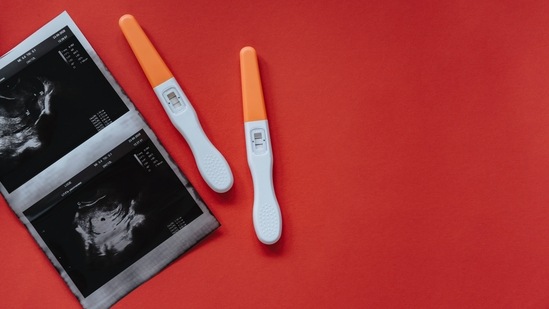Infertility: Watch out for these lifestyle issues that can delay conceiving
From how well you sleep to what you eat to where you work, everything has profound effects on fertility. It is important to understand the ways in which lifestyle behaviours may benefit or harm fertility and actively modify them to improve fertility potential.
With an estimated 22-33 million Indian couples impacted by infertility, the problem of infertility is growing by leaps and bounds in the modern world since from how well you sleep to what you eat and where you work, everything has profound effects on fertility. It is important to understand the ways in which lifestyle behaviours may benefit or harm fertility and actively modify lifestyle behaviours to improve fertility potential.

A person's general well-being in several ways affects their reproductive health where fertility can be significantly impacted by a variety of lifestyle choices, including when a couple plans to start a family, nutrition, weight, exercise, psychological stress, exposure to pollutants in the environment etc. In an interview with HT Lifestyle, Dr Kshitiz Murdia, CEO and Co-Founder of Indira IVF, highlighted, “Even lifestyle choices like drinking alcohol and caffeine, using illegal drugs and smoking cigarettes can affect a couple's ability to conceive successfully. For instance, diabetes, which is sometimes referred to as a lifestyle disease, can result in polycystic ovarian syndrome (PCOS) in women and low testosterone in men, both of which have an effect on reproductive health and can cause infertility.”
According to him, “Long-term diabetes patients may experience blood circulation problems and troubles with the nerves. This could cause erectile dysfunction, or trouble getting an erection, as well as problems with ejaculation, which would harm their fertility. In women, compared to their non-diabetic peers, Type 1 diabetes patients have reduced chance of getting pregnant and raises chance of miscarriage and stillbirth. Furthermore issues like obesity and anaemia can increase the complications. Exposure to hazardous substance in the environment is another important factor. We could be exposed to dangerous toxins in the environment. This can include radioactive materials, harmful factory gases, or high amounts of pollution. Such long-term exposures can influence both men and women's reproductive systems, which in turn can change the size and form of eggs and sperms.”
He advised, “One should see a doctor and seek advice from a fertility expert upon not being able to conceive after trying unprotected intercourse for more than one year. Being a parent is one of the most basic transformations for most men and women, and the stress of not being able to have children can worsen one's emotional and mental health. Therefore, adopting healthy living practices is a way to ensure a well-functioning body in addition to guaranteeing proper reproductive health.”
Adding to the list of lifestyle issues that can delay conceiving, Dr Sujit Ash, Consultant, Gynaecology and Obstetrics at PD Hinduja Hospital and Medical Research Centre in Khar, revealed:
- Age plays a major role in determining the fertility of both partners. Infertile couples should access care early after a maximum of one year without conception and 6 months among older couples. Also with age, the risk of diabetes mellitus or hypertension increases that can affect libido and fertility, hence the drugs for treatment have to be chosen judiciously.
- Maintaining a healthier weight helps to prevent hormonal imbalance which adversely affects fertility thereby improving ovulation and the risk of miscarriage and other complications. Among women with obesity who have polycystic ovary syndrome (PCOS), losing 5% of body weight greatly improves the likelihood of ovulation and pregnancy. Overweight infertile women are encouraged to reduce weight for effective treatment outcomes. On the other hand, being underweight is also linked to ovarian dysfunction and infertility in women.
- Moderate regular exercises could help to release endorphins which would help relaxation and also help in weight control. But too much of exercise may be detrimental. Lean and underweight women who exercise vigorously or are on anabolic steroids may put themselves at risk for hormonal imbalance thus decreasing fertility. Finding a balance provides the best chances of achieving a pregnancy.
- In the current generation, substance use, including smoking tobacco, using other tobacco products, marijuana use, caffeine addiction, heavy drinking, and using illegal drugs such as heroin and cocaine is very common and the fact that these reduce fertility is not unknown. The need to understand the side-effect and refraining from such substances need to be inculcated.
- Infertile couples should avoid anxiety and emotional stress. Also it is a known fact that nutrition impacts fertility thus good nourishment and a balanced diet should be encouraged.
- Radiation therapy and chemotherapy can cause infertility in females. Those who have to undergo these types of treatments may want to consider fertility preservation like oocyte or embryo freezing.
- It would be wise to avoid excessive irradiation by reducing contact with electronic gadgets like mobile phones that emit electromagnetic waves may prevent infertility. The presence of toxic pesticides and solvents in our day to day life cannot be denied. It is not possible to eliminate all hazards in the environment, but efforts can be made to reduce them.
Most lifestyle factors are modifiable habits. Counseling of infertile couples enhances awareness of the risk of lifestyle behaviors and facilitates appropriate lifestyle changes that might improve reproductive health.
Catch your daily dose of Fashion, Health, Festivals, Travel, Relationship, Recipe and all the other Latest Lifestyle News on Hindustan Times Website and APPs.



